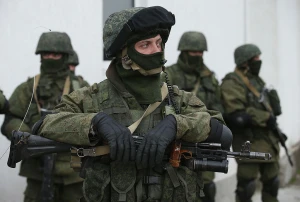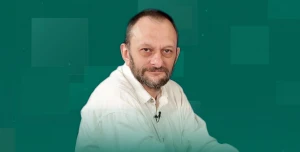
Sanctions, ignoring, and countering propaganda destroy aggressor
Russia is summarizing the results of the first quarter of 2023 and the first year of a full-scale war
Of course, official sources convince the population that everything is under control and there is no reason to panic. Russia's economy indeed has a margin of safety. However, this margin is being depleted.
In particular, in the first two months of 2023, Russia's GDP decreased by 3.2% after falling by 2.1% last year.
Industrial production decreased by 2% over the two months, despite the round-the-clock operation of defense plants, whose output jumped by almost 40% according to indirect data. The decline in mining accelerated (3.2% in February vs. 3.1% in January); the automotive industry (-69.9%) and the pharmaceutical sector (-22%) started the year with double-digit declines.
The head of the IMF mission to Ukraine, Gavin Gray, said that the Fund considers the end of the war in Ukraine in 2024 as a baseline scenario and 2025 as a negative scenario. In the first scenario, the IMF foresees a 'financing gap' in Ukraine of USD 115 billion, and in the unfavorable scenario – USD 240 billion.
Ukraine's losses are measured not only in billions of dollars, but also in human lives and the destruction of the country. And Russia will not stop unless it is defeated in Ukraine. Therefore, in order to break the Russian military machine as quickly as possible, it is necessary to seek and apply the most effective means.
Moreover, Russia, trying to avoid the sanctions already imposed, suggests the directions of the necessary strikes.
1. For example, the Russian Federation has extended its decision to reduce oil production by 500,000 barrels per day until the end of 2023.
It announced this after OPEC members Saudi Arabia, the UAE, Iraq, Kuwait, Oman, and Algeria announced that they would also cut production by the end of the year.
In this way, the Russians are trying to push the price of oil up and get out of the trap where it has been trapped by the EU and G7 embargoes and price restrictions.
To prevent such a scenario, it is necessary to lower the ceiling on price restrictions in the coming weeks, forcing market participants to keep prices at a level that is unfavorable for Russians (but acceptable to them) under the threat of secondary sanctions.
“The ceiling on price restrictions should be lowered in the coming weeks, forcing market participants to keep prices at a level that is unfavorable for Russians (but acceptable to them) under the threat of secondary sanctions.”
2. Moreover, the 'third countries' do take into account the prospects of falling under secondary sanctions in their policies.
For example, the UAE does not allow Russian banks to operate. The country's central bank revoked MTS Bank's license a few months after it was issued, precisely because of US sanctions.
MTS Bank received permission to open a branch in Abu Dhabi in 2022, but in February 2023, it was sanctioned by the UK and the US. It was then asked to leave the UAE.
Earlier, the Central Bank of the UAE suspended Sberbank's subsidiary in the country at the request of the United States.
Russian accounts in Cyprus began to be massively blocked.
3. In addition, constant diplomatic work is needed to expand both the geography and the range of sanctions.
Japan can serve as an example. On April 7, new export restrictions on Russia will come into effect.
The following items will be banned from export to Russia:
- airplanes and drones, as well as parts and components for the aviation and space industries;
- construction equipment;
- optical devices;
- radio equipment for navigation;
- children's bicycles and toys.
Thus, the Japanese government is trying to take into account the experience of Russians circumventing restrictions on the supply of technological products. In particular, under the guise of household appliances or even toys.
4. The President of Moldova said that the country could become completely independent from Russia in the energy sector in two years.
She believes that this independence will strengthen the country, in particular, in the process of settling the Transnistrian conflict.
In this matter, the disappearance of the Transnistrian Russian enclave is in Ukraine's interests. We should seek joint action with the Moldovan authorities. And we should not repeat stupid things like the kidnapping of former judge Chaus in the hope of using him in a political struggle.
“The disappearance of the Transnistrian Russian enclave is in Ukraine's interests. We should seek joint action with the Moldovan authorities. And we should not repeat stupid things like the kidnapping of former judge Chaus in the hope of using him in a political struggle.”
5. Finland has frozen the assets of the Russian Center for Science and Culture in Helsinki.
Such steps are symbolic, and not only in the context of Finland's accession to NATO.
Such 'centers' have become breeding grounds for the ‘Russian world’ and should be closed as dangerous centers of Russia's 'hybrid' war against Europe and its civilization.
And Finland's accession to NATO is a special greeting to the Russians. This is yet another proof that 'fear of the Alliance' or 'lengthening the border' with it has nothing to do with the real reasons for the Russian aggression.
Russia simply came to terms with Finland's independence a long time ago. But not yet with the independence of Ukraine. And it is going downhill in the fight against it.
Source
About the author. Rostyslav Pavlenko, Ukrainian politician, political scientist, political strategist, lecturer, former MP.
The editors do not always share the opinions expressed by the authors of the blogs.
- News














































